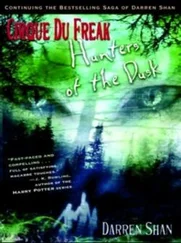The god’s hands clutched a flame, an antelope skin and a flask, and on either side of him stood two smaller figures of Rama and Balarama. Carved from a single block of sandstone, only five of his eight hands were still attached to surviving arms but all of them were carved with finesse, the individual nails carefully grooved. Like a young pharoah, the god wore a tall cylindrical hat and a folded loincloth, his physique slender and lifelike, with wide shoulders and a little bulging belly. The surface had turned a dark green from the unhappy centuries.
Robert, however, found himself thinking not about unhappiness but its opposite. Vishnu, destroyer of worlds, might have something to do with happiness but he didn’t know what it was. The missing hands seemed to be the clue. They must exist somewhere even now, relics mounted in distant American or Chinese homes or buried in dusty museums on the far side of the world. Timeless. Where, though, did these oval faces, aquiline noses and almond-shaped eyes come from? Even the tear ducts, the pupils and canthi of the eyes were perfectly carved. The figure of Balarama, the elder brother of Krishna, which stood to the right of Vishnu, was arresting. His left eye had been obliterated but his gentle smile was still intact, as was the symbolic swing plow he carried. His figure was boyish, tilted at the hips. Rama, meanwhile, held a tall bow and gazed down at Robert with a haughty gentility. As an avatar of Vishnu, he was associated with knowledge and eternity. He also partook of the enigma of happiness.
—
Robert walked to Le Royal after getting directions from the museum staff. It was a stiff walk, but he had an hour to waste anyway, and as he made his way through Street 102 he saw a lovely shaded colonial-looking apartment block called Colonial Mansions with a pool shining behind glass doors. If his fortunes improved he made a resolution to look in and see how much it would cost to live there. At Le Royal, on the far side of the park behind this building, the staff had stepped out onto the gravel driveway and were peering up at the sky as if something unpleasant had just happened or was about to happen. In his decent clothes he passed through them with a mere nod and a smile, and he felt a sudden pleasure at this automatic respect, which he had never enjoyed from anyone before. He had a different step now, a more confident stride. It had come to him quite suddenly. The grand hotel was gearing up for lunch and in the lobby the upscale barang types and the businessmen from Seoul and Shanghai were there in their dark suits. He slipped in among them and a few of the women looked up and checked him out with a quiet appreciation. He saw it, he felt it, and it made him smile. He was aware of himself looking quite glamorous, burnished by sun and idleness and a youth much less latent. Blending in, he passed through them with a quicksilver pleasure.
A long corridor to the left of the lobby led to the Royal restaurant, and the table was waiting in a still-empty room. It stood next to a door-size beveled mirror with a view of a pool. The staff looked him over without any trace of snobbery and he took the table and ordered a Singapore Sling and a tall glass of iced water. He did it without missing a beat. It was curious how naturally it came to him. Maybe Simon had been right — he was a good sport. Now stilled and appeased in some way, he stretched out his legs under the table and looked around. The walls were covered with French colonial lithographs, scenes of moonlit picnics and elephant rides, images with titles like Pique-Nique sur le Bassac and Éléphants au bord du Tonlé Sap . There were old photographs of dance troupes in traditional costumes, like child-women with painted white faces, Des danseuses du roi se préparant à la danse. It was a world within a world, and the world to which it had once belonged had entirely disappeared. The foreign correspondents had all lived here during the war in 1975. Even now there was something not quite right about it. The boys in bow ties and awkward waistcoats, the chandeliers moving slightly in the subtle gusts from the air conditioners. The ceiling’s painted panels. Yet it was not a decor he felt out of place in now. He thought, with a quiet astonishment, that this would not have been true only a week earlier. It was like stepping into a grand house to which, although it appeared unfamiliar at first, he had been subconsciously accustomed all his life. From beyond the walls the koel birds could be heard in the towering trees arranged around the two colonial pools. High above which, on the room balconies, were little signs that read Please do not feed the monkeys. It was the life of the rich, the tropical rich, and all one had to do was look the part and not hiccup.
Robert felt sweat spreading slowly all along his shoulders, his hand was unsteady on the stem of the water glass.
“Keep it steady,” he told himself. “No passing out here. No scenes.”
The doctor, as it transpired, was late — he was a busy man — and Robert was alone until 12:20, sipping down his Sling and getting quietly tipsy on a stomach that now felt empty. The dining room filled and the music was turned up. Until, as if announcing Dr. Sar, the doors finally swung open and the man himself walked in, a small and hairless head of about sixty-five with a body wrapped up in a white suit. He carried a briefcase and a strange-looking paper parasol which he had folded. One could imagine him stepping into the sun and suddenly unfolding it to protect his pale Chinese skin. The eyes were fast. He spotted Robert at once and came over rocking slightly from side to side on bowed legs. Yet the face was actually quite young, almost wrinkleless, and one didn’t see at first the incredibly fine wire spectacles that lay across the bridge of his nose.
“You are Beauchamp, then?”
There was a laugh and a handshake and down went the briefcase into the arms of a waiter.
“Welcome, Dr. Sar,” the boys intoned, bowing.
“They know me here,” Sar added unnecessarily.
It seemed that he sometimes took wealthy clients here to break bad news to them and, by Buddha, it was better than doing it at the clinic.
He looked over the foreigner with a careful attention to detail. The boy’s clothes didn’t quite fit, and there was a dogged rigor in his eyes. So he had come to put on a show for the doctor. He needed the money.
“The truth is,” Sar said almost at once, as the salmon carpaccio was brought in and a bottle of Perrier was broken open as if it was champagne, “that my wife and I are looking for a language tutor for our daughter. She’s twenty-five. She just came back from a year of medical practice in Paris. A place called the Hôpital Dieu. Do you know Paris, Mr. Beauchamp?”
The eyes twinkled and Robert decided that lying was better than not.
“I do, yes.”
“Mrs. Sar and I are terrible French snobs, I am afraid. Even though I applied myself much more to English. Not that I speak well or anything—”
Robert’s protests were waved away.
“No, no, I know how badly I speak. But anyway. My daughter has never learned it properly, since like us she is French-mad. But now she finds that her sorry English is stopping her progress here. The tyranny of English reached us a long time ago, I am afraid to say. I am against it myself — but what can one do against a whole age? At least at the Royal we have Tournedos Rossini for lunch.”
“Ah.”
“Have you ever had them? Of course not, you are too young. You’ve been raised and brainwashed by doctors. You are all vegetarians now, or worse. Let me take you back in time then. Tournedos Rossini. Steak with foie gras riding on its back. I am a doctor eating such things. My wife does not know. Shall we have two orders of that? And no salads, please!”
Читать дальше












